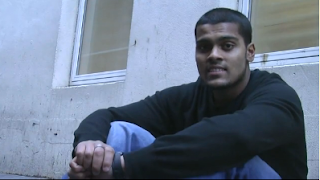Evaluation question 1:
Carol Vernallis
Carol Vernallis studies were
mostly based on editing and camera work of music videos. She said that edits
are often more used in music videos than films and that music videos break the
rules of continuity to attract attention of the audience to what is being
displayed. There might be obvious edits
used to draw attention such as special effects and transitions. She also implied that a base track is used to
provide a structure for the video and editing might be in time with the beat to
add rhythm.
Godwin implied that narrative analysis traditionally
does not rely relate to pop videos. This is because they are presented at a
different angle to films and novel narratives. Because songs do not have
traditional narratives their music videos won’t as it is based on the song. The
singer looks directly at the camera trying to involve the audience this is an
act of performance. Music videos are very repetitive. Repeating scenes and
images because of repeated verses or choruses. Structure of the video is to
build up hitting a climax and then fade away slowly.
Godwin’s 3 types of relation between song and video are
1)Illustration: Video tells the story of the lyrics
2)Amplification: new meanings being introduced which doesn’t
contradict the lyrics:
3)Disjuncture which there is little
connection between the lyric and video where the video contradicts the lyrics.
Does my media products use, develop or challenge forms and conventions of real media products?
Our music video complies with the theory of
Vernallis as it has a great range of edits and contains many obvious edits that
are extremely noticeable.
One obvious edit used in our music video is the sped up
effect of traffic. This added a sense of time progressing and moving on. This edit was influenced by the music video
of the script “ The man who cant be moved” which also used the edit of sped up
traffic to show time passing.
3:11
2:40
Our music video also relates to the conventions of Andrew Godwin's
Some shots of our music video is illustrative for example an line in of the lyrics from The city is "The pavement is my friend" we linked to this line as throughout the music video there is many shots of the artist playing the guitar on an pavement (00:42). This idea also linked to the script as the artist is also sitting on the pavement in the corner (2:43).
The music video has some illustrative points however it does have a use of amplification because the video follows the lyrics but it has shots which isn't in line with the lyrics but still links in with the meaning of the song. This is because the video shows the city and shows means of travelling instead of following what the artist is doing at that exact point. this shows that we decided to follow the conventions of both Vernallis and Godwin which can be displayed in different parts of the music video
My digipak and advertisement poster also follow conventions.
The most important conventions are:
A picture of the artist which is clear
A suitable font which really be repetitive
The name of the artist and album name clearly displayed and readable
Tracks information
Production company
Some are more for one then the other
Suitable colour code
It can be seen that both digipak and poster that i followed the conventions. In both digipak i used an clear image of the artist and an suitable font which is readable however i did not use an consistent font size and design as i made the name of the artist a bigger font and the name of the album an different colour. The colour code i used for my digipak was very suitable and simple. The colour code for the poster was also very simple. one influencial digipak was florence the machine. I liked the simple but effective front cover of the digipak and decided to follow the idea of having another image of the artist on the inside however i decided to add an effect of the image.
The poster for Florence the machine also gave me ideas such a having an linking image to the digipak. Also having the album name stand out








No comments:
Post a Comment